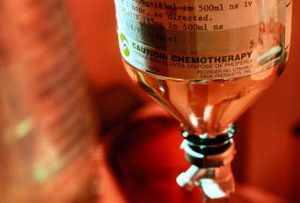Cancer need not be a ‘dirty’ word
 Cancer is newly being defined as “a disease of tissues that lack the ability to perform normal cellular function such as programmed cell death and loss of normal cell growth”. It has also been described as “cellular chaos”.
Cancer is newly being defined as “a disease of tissues that lack the ability to perform normal cellular function such as programmed cell death and loss of normal cell growth”. It has also been described as “cellular chaos”.
When one considers the emerging concept that cancer is a disease of altered cell signalling or communication, one must by default consider ways of re-instating correct cellular communication.
We further need to consider that cancer is a disease of modern times reflecting unregulated energy management. Extended periods of extreme fatigue and very low energy levels often precede a diagnosis of cancer.
What is involved in the development of cancer?
- Disturbances in insulin
- Inflammation
- Increased genomic instability
- Altered mitochondrial function
- Disturbed methylation and other biochemical processes
- Cellular hypoxia (lack of oxygen) and increased anaerobic metabolism
Excess body weight has been attributed with one of five of all cancer-related deaths including breast, colon and rectal, endometrial, oesophageal, kidney and pancreatic cancers. The underlying factor fuelling all these conditions is inflammation.
Further unspecific influences that can initiate malignant transformation include:
- Radiation, Electromagnetic Frequencies
- Viral, bacterial and fungal infections
- Chemotherapy
- Chronic inflammation
- Toxins such as chemicals and heavy metals
Certain bacteria have been shown to cause DNA damage and trigger inflammation.
While genetics has often been used to frighten, data shows that genetic causes of cancer only account for 5% to maximum 10% of all known diagnosed incidents.
Environmental influences or epigenetics, account for 90-95% of all cancers.
Toxic substances that have been linked to human cancers include:
- Arsenic
- Asbestos
- Benzene
- Bisphenol A (BPA)
- Chromium Hexavalent compounds
- Dioxins
- Formaldehyde
- Polybrominated diphenylethers (PBDEs)
- Polycyclicaromatic hydrocarbons (PAHs)
A major factor influencing our overall health as well as susceptibility to cancer is our diet.
Conventional and Integrative Oncology
 The current accepted treatment of cancer includes the use of chemotherapy drugs or radiation therapy. The limitations of these methods includes high incidence of collateral damage due to the toxicity of drugs used, high incidences of liver and other organ damage, systemic toxicity and resistance. As cancer cells reproduce, they mutate often resulting in chemotherapy drug resistance. This is frequently the case with hormone fuelled cancers. While some newer methods have been renamed “immunotherapy” the drugs used are a form of chemotherapy with many unwanted side effects. Some of the most common side effects are anaemia, appetite changes, loss of taste, weight loss, constipation, diarrhoea, fatigue, hair loss, immuno-suppression, infection, infertility, insomnia, mouth and throat inflammation, nausea and vomiting, nervous system changes, pain, sexual changes, urinary-kidney-bladder and liver damage.
The current accepted treatment of cancer includes the use of chemotherapy drugs or radiation therapy. The limitations of these methods includes high incidence of collateral damage due to the toxicity of drugs used, high incidences of liver and other organ damage, systemic toxicity and resistance. As cancer cells reproduce, they mutate often resulting in chemotherapy drug resistance. This is frequently the case with hormone fuelled cancers. While some newer methods have been renamed “immunotherapy” the drugs used are a form of chemotherapy with many unwanted side effects. Some of the most common side effects are anaemia, appetite changes, loss of taste, weight loss, constipation, diarrhoea, fatigue, hair loss, immuno-suppression, infection, infertility, insomnia, mouth and throat inflammation, nausea and vomiting, nervous system changes, pain, sexual changes, urinary-kidney-bladder and liver damage.
The principles of integrative oncology:
- Increase natural resistance to tumour cells
- Treatments tend to be nourishing and nurturing – both physically and emotionally
- Treating the person according to their individual needs
- Holistic treatment recognising lifestyle factors, stress, mind and body
- Incorporating evidence from cancer epidemiology, scientific and clinical research together with the ancient wisdom of natural healing systems including Traditional Chinese and Ayurvedic Medicine.
Integrative oncology typically helps to reduce cancer risk, improve quality of life, decrease symptoms of cancer and improve active cancer treatment. Up to 80% of all cancer patients use complementary or integrative medicine modalities [Stargrove, Treasure & McKee 2008].
What you can do to avoid cancer
Diet and lifestyle
- avoid environmental, household/personal and occupational toxins

- ensure you eat a largely organic plant-based diet high in natural fibres and nutrients
- maintain a healthy gut flora or microbiome
- get adequate quality sleep
- moderate exercise including yoga and meditation
- avoid stimulants especially ‘energy’ drinks, excess coffee and alcohol
- avoid drugs, cigarettes and other known toxic substances
- avoid processed and high sugar foods
- ensure adequate water intake
Professional guidance
Enlist the advice of a qualified Integrative and/or Functional Natural Medicine practitioner who will be able to assess your individual needs, recommend lifestyle and/or dietary changes and prescribe supportive therapies while working with you and your medical team.
